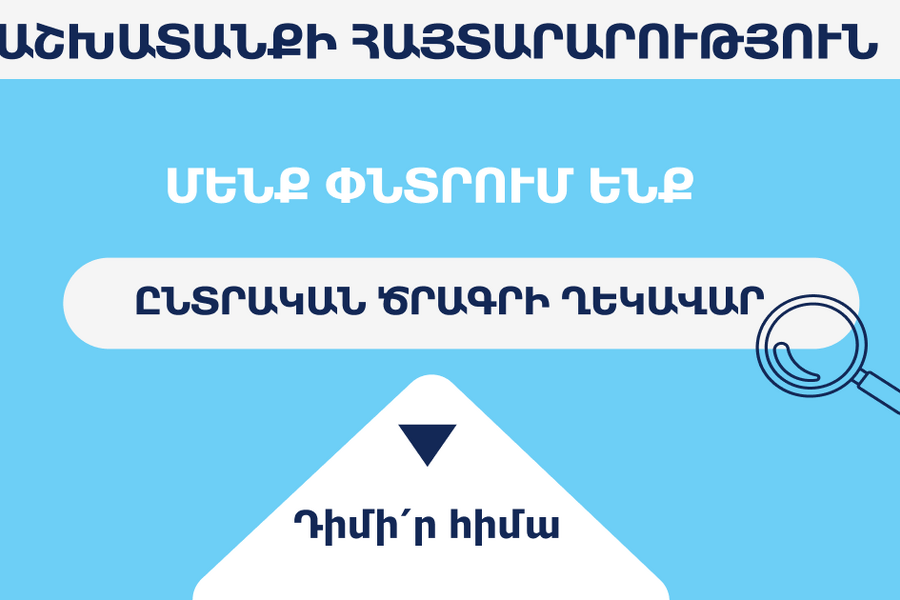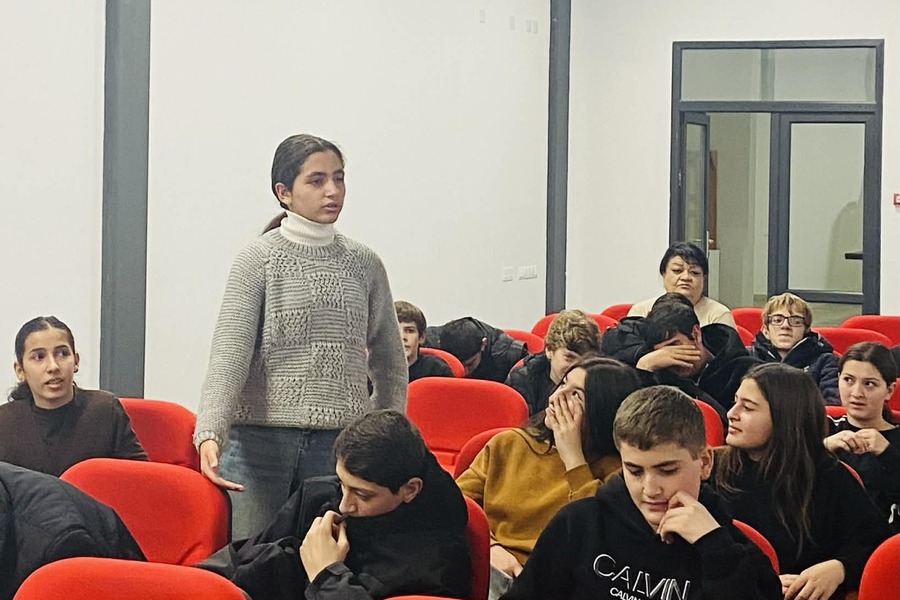On terminating the membership in the Competition Council for the selection of the chairman candidates for the Anti-Corruption Committee
Pursuant to Article 18 of the RA Law on the Anti-Corruption Committee (hereinafter referred to as the Law), in order to organize the process of electing the Chairman of the Anti-Corruption Committee (hereinafter referred to as the Committee), by order N 1055-A by the Chief of Staff of the RA Prime Minister, a tender council was formed (hereinafter referred to as the council). The representative of the Transparency International Anti-Corruption Center (hereinafter TIAC) NGO was also included in the competition council.
The newly formed anti-corruption committee is a specialized operative investigative body in the fight against corruption, therefore, in order to guarantee the effectiveness of its activities, it is crucial to elect the chair that will properly ensure the observance of the principles of Article 5 including the independence of the body and its political neutrality.
In this regard, the most important task of the Competition Council is to establish effective legal mechanisms for checking the integrity, personal and professional qualities of the candidates for the chairman of the committee, resulting in the election of the chairman endowed with high public trust.
During the work of the Competition Council, a number of decisions were made, which, unfortunately, do not guarantee effective legal mechanisms for checking and evaluating the integrity and professional qualities of the candidates. In particular, the following issues have been identified:
- Checking the integrity of the chairman of the Anti-Corruption Committee
In order to check the integrity of the candidates in accordance with Article 18, Part 12, Clause 6 of the Law on the Anti-Corruption Committee, the Competition Council applies to the RA Anti-Corruption Commission and receives an advisory opinion. Then, within the framework of the competition, the council also evaluates the integrity of the candidates.
In reference to the issue under discussion, TIAC has proposed to use a mechanism for assessing the integrity of the candidates, which will ensure high public confidence in the candidate and accordingly in the anti-corruption law enforcement body. Thus, in one case, a method has been proposed where the negative assessment of each component of integrity (for example, political affiliation, criminal subculture, not proper declaration of property and income, etc.) would be decisive for the overall integrity of the candidate without setting a percentage for each of the components.
Subsequently, it has been suggested at least a higher passing threshold be set at the final assessment of the integrity of the candidates (70% of the maximum intended score, as opposed to 50% of the other criteria). Moreover, this approach has been found more important in the work of the council in the event that two of the seven possible members defined by law were not actually involved. Both of the above mentioned proposals were not accepted by the council.
- Checking the professional and personal characteristics of the candidates for the chairman of the Anti-Corruption Committee
Pursuant to part 3 of Article 19 of the Law on the Committee, among other information, the announcement of the competition of the committee chairman shall indicate the questionnaire approved by the council, the conditions of the competition, including the interview procedure by the council.
Article 19 of the law on the Committee regarding checking professional qualifications, in fact, stipulates two legal regulations, which at first sight may lead to misinterpretation.
In particular, in accordance with Article 19, part 6, point 3, subpoint (a), the council shall, at the interview stage, check, among other characteristics, the candidate's personal analytical abilities. It is obvious that the main way to check the discussed skills is the process of analyzing, evaluating and presenting a conclusion of the candidate through professional questions. According to sub-point (b) of the same provision, the candidate presents his / her positions and analysis on a brief legal issue.
The above-mentioned legal regulations do not restrict the council in any way by a relevant decision fixing the conditions of the competition to establish the authority of the council members to ask any questions to the candidates within the framework of the questionnaire approved by the council for comprehensive examination. Moreover, from the point of view of broad interpretation of the law, it is the duty of the council member. Meanwhile, the council stipulated that the candidate may be asked additional questions within the framework of only one question, in other words, the principle of narrow interpretation of the legal norm limited the authority provided by law for council members to ask questions within the questionnaire to test candidates' analytical abilities.
Considering that TIAC, through the participation in the Competition Council, did not have the opportunity to fully contribute to the assessment of the integrity of the candidates,their professional qualities, to the development of appropriate mechanisms for the selection of worthy candidates for the position of the Committee Chairperson, we do not consider it convenient to continue the membership of our representative in the Competition Council.
From now on, we are going to consider the election of the chairman of the anti-corruption committee, following the public processes.







